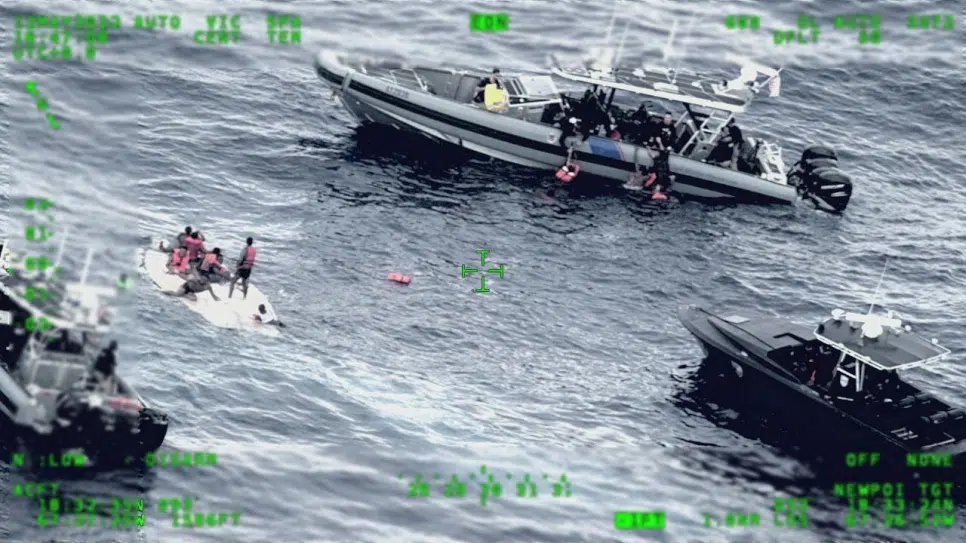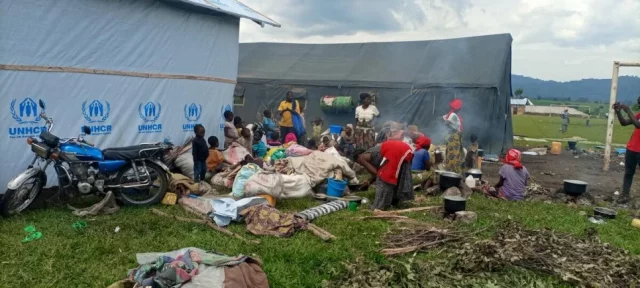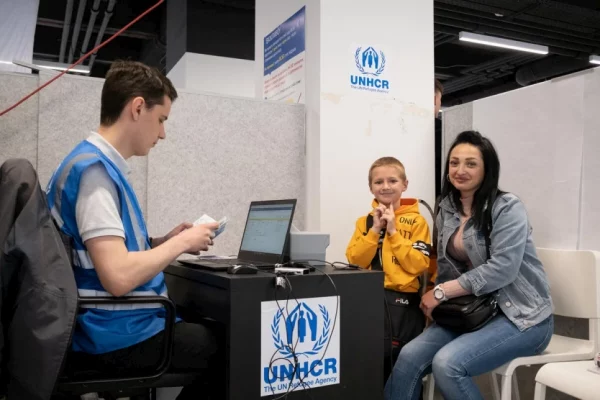
A still image from a surveillance aircraft video shows rescuers arriving after a boat carrying refugees and migrants capsized north of Desecheo Island, Puerto Rico on 12 May, 2022. © United States Coast Guard/Handout via REUTERS.
This is a summary of what was said by UNHCR spokesperson Shabia Mantoo – to whom quoted text may be attributed – at today’s press briefing at the Palais des Nations in Geneva
UNHCR, the UN Refugee Agency, is increasingly concerned by the sharp increase in individuals, including a growing number of Haitians, resorting to dangerous journeys in the Caribbean Sea, many taking place in overloaded and unseaworthy boats.
UNHCR is urging governments in the region to fulfill their maritime rescue obligations and ensure all those in need of international protection are identified and offered unobstructed and prompt access to fair asylum procedures.
The worrying trend in perilous crossings was recently highlighted when a vessel carrying over 800 Haitians, attempting to reach the United States, arrived in Cuba after being abandoned by its captain and set adrift at sea.
Search and rescue at sea is a legal and humanitarian imperative, and those rescued include refugees and others in need of protection. Coordination, solidarity, and responsibility-sharing are crucial in responding effectively and ensuring that people in need of international protection are not returned to their country of origin, and the dangers they have fled.
While refugees and migrants of various nationalities have been making voyages by sea throughout the Caribbean region, an increasing number are of Haitian origin. As of May, the U.S. Coast Guard reported it has interdicted almost 3,900 Haitian nationals in fiscal year 2022 – more than double the number in fiscal year 2021 (1,527 Haitians). In addition, at least 175 Haitians have been reported as missing or deceased to the U.S. Coast Guard.
Many of those who resort to dangerous sea crossings are fleeing the political instability and socio-economic insecurity of the region that has put severe strains on communities throughout the Caribbean. The situation in Haiti has led to waves of mixed movements of migrants and asylum seekers from the country, amid a recent increase in gang-related violence, internal displacement, natural disasters, and a lack of employment opportunities. Humanitarian and security conditions in Haiti remain dire, making pushbacks or forced returns even more dangerous.
In response to the growing numbers risking their lives in perilous sea crossings, UNHCR is working with governments in the region to support the response and reception of arrivals at their borders. Receiving states have the first line of responsibility in protecting those who may have well-founded fears of persecution in their country of origin.
It is vital to ensure that arrangements for disembarkation of those rescued do not result in summary return, and that they have access to procedures to have their claims assessed before being expelled or deported.
UNHCR will continue working with governments in the region to strengthen national reception and asylum systems, ensure the protection of refugees in a fair and efficient manner, and support international human rights and refugee law, while respecting national security concerns and state sovereignty.
For more information on this topic, please contact:
- In Washington, D.C., Andrea Mucino-Sanchez: mucinosa@unhcr.org, +1 202 751 9000
- In Geneva, Shabia Mantoo, mantoo@unhcr.org; +41 (79) 337 76 50
Originally published by UNHCR on 27 May 2022





